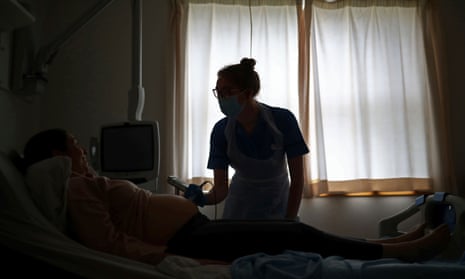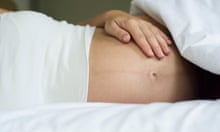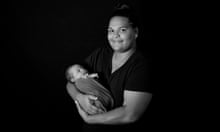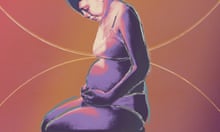Women who lose a baby during pregnancy should be offered help after having one miscarriage rather than the three currently needed to trigger NHS support, doctors say.
The Royal College of Obstetricians and Gynaecologists (RCOG) wants the NHS to overhaul its rules so that any woman who suffers a miscarriage receives some form of care, mainly information and guidance, to help them cope with their loss and plan future pregnancies.
Anyone who has two miscarriages should automatically be offered an appointment for an initial investigation at a specialist miscarriage clinic and a more in-depth exploration of their health after losing a child after conception three times, the college says in a new medical guideline.
“Miscarriage is a distressing, shocking and traumatic experience for many women and their partners. For too long the topic has been under-researched and the care for women and their partners under-resourced,” said Dr Edward Morris, the president of the RCOG.
“We believe women should access appropriate and standardised care after their first miscarriage and that is why we are endorsing the graded model for miscarriage care in this guideline.”
The college wants women who have a miscarriage to have easier access to diagnostic tests, treatment and support to help increase their chances of having a baby in the future. Data on miscarriages is not collected in the UK but one in four of all pregnancies are thought to end that way, according to the baby loss charity Tommy’s.
The college’s guidance also identifies for the first time older fathers as a reason why some women have miscarriages. However, it says paternal age is not as significant a risk factor as the age of the mother-to-be. There has been a trend towards older motherhood in recent years.
The RCOG lists a number of other risk factors including a previous history of miscarriage, the woman being either underweight or overweight, smoking and consuming too much caffeine. But, the college stressed, “a significant proportion of women with unexplained recurrent miscarriages are healthy women with repeated sporadic miscarriages and no known cause”.
About one in 100 women in the UK suffer recurrent miscarriages, says Tommy’s, which supports those with high-risk pregnancies and funds research into why so many babies are lost during pregnancy. It points out that more than 60% of women who have recurrent miscarriages do go on to have a successful pregnancy later.
Prof Dame Lesley Regan, the lead developer of the guideline, said the cause of many recurrent miscarriages was never known. “A significant proportion of cases of recurrent miscarriages remains unexplained, despite detailed investigation.”
But, she added: “These women and their partners can be reassured that the prognosis for a successful future pregnancy with supportive care alone is in the region of 75%.”
Jane Brewin, the chief executive of Tommy’s, welcomed the RCOG’s call for changes to help women to deal with the trauma of miscarriage and reduce their risk of having another.
She said: “The right care can reduce the risk of miscarriage, and the right support can help parents if they experience loss. But that help isn’t reaching everyone across the UK after every miscarriage. This can and must change.”








